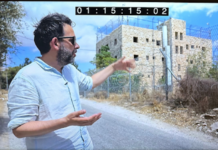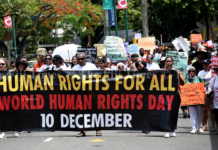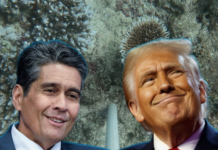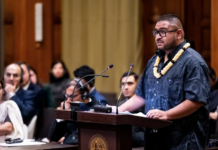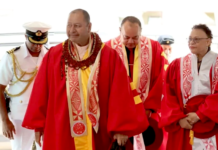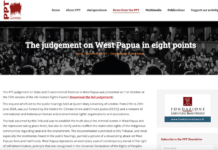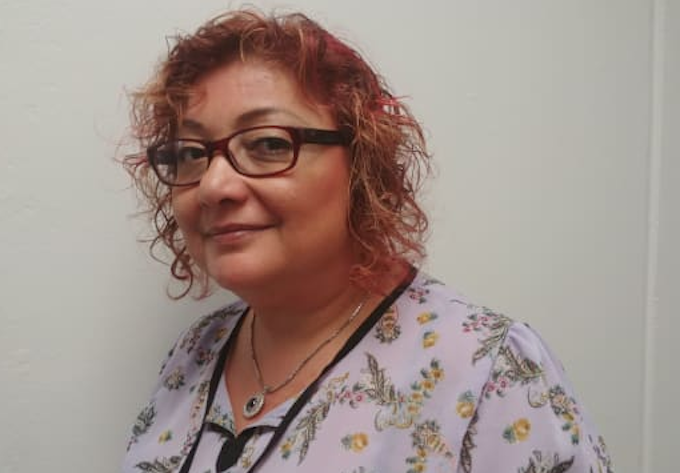
An academic says hostage diplomacy is a well-known tactic of the Iranian regime and New Zealanders should not go to the country.
Topher Richwhite and Bridget Thackwray are understood to have been detained for months after entering Iran.
The New Zealand government negotiated for the safe release of the pair but has remained tight-lipped about the details.
- LISTEN TO RNZ MORNING REPORT: ‘Iran is in the middle of a revolution’ – Massey University lecturer Dr Negar Partow
- Protests in Berlin, US cities in solidarity with Iranian women
- Iran protests: Why the country’s women are rebelling
- Other Mahsa Amini solidarity reports
A senior lecturer from Massey University who was born and raised in Iran, Dr Negar Partow, said there was a pattern of this kind of action in Iran.
However, she told RNZ Morning Report it was not necessarily naive for the couple to visit the country.
When they arrived in July it was much quieter than what it became when the unrest started in September after the death of Mahsa Amini, who was detained by morality police for allegedly not covering her hair properly.
However, travelling in a Jeep — a US brand — might have created suspicions, she said.
NZ not especially targeted
The move against the New Zealanders was not especially targeted at this country, she said, with as many as 70 nations having citizens in Iranian prisons.
“The fact that Iran entered a revolutionary phase complicated the situation and gave the Islamic Republic the opportunity to use them and to create a hostage diplomacy. This is not particular to Aotearoa. They do it all around the world,” she said.

People with dual citizenship, diplomats, activists, and human rights and environmental advocates were especially vulnerable to attention from Iranian authorities.
If the couple had been focusing on environmental concerns that may have made them a target, she said.
“As the Islamic Republic becomes more and more challenged and de-legitimised by this revolution, these hostage crises will increase and they will use any opportunity as a bargaining chip.”
There have been conflicting reports on now the couple were detained.
Dr Partow said Iran used different models, including imprisonment or being detained in a safe house and not being allowed to communicate.
Richwhite and Thackwray would have had their passports confiscated and their cellphones removed with their Instagram posts stopping in July.
She believed they were not put in prison.
Tepid resoponse by NZ
Asked about the tepid response by the New Zealand government to the unrest in Iran, she said the government was trying to do a delicate balancing act while the couple were being detained.
Many Western governments had to resort to hostage diplomacy with Iran.
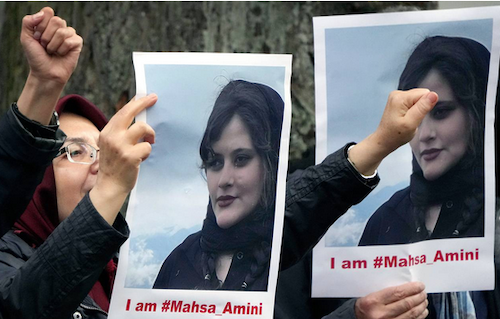
While Foreign Minister Nanaia Mahuta has warned against visiting Iran due to the potential for violence, Dr Partow said it was important to remember the violence was being perpetrated by the security agencies not the protesters.
She said now that the couple had been freed, she was hopeful Aotearoa would take a stronger stance.
“Yes we have been too kind but I’m hoping that as we come out of this period and everybody’s back to normal diplomacy we will take stronger action against the Islamic republic,” she said.
“As the prime minister mentioned as well, this was a delicate diplomatic situation … we did have two New Zealanders inside Iran detained and I think that [strong criticism of Iran] would create more complications.”
Expulsion of ambassador
The expulsion of the ambassador, campaigning for oil embargoes, speaking out publicly to support the rights of Iranian women and human rights lobbying at the United Nations were among measures New Zealand should be considering.
“Now that we have been the victim of hostage crisis in the Islamic Republic that should give us much more importance into the project and we should actually work on it,” she said.
As for advice for potential visitors, she said: “Definitely not. Iran is in the middle of a revolution.”
Ordinary citizens were not in a position to offer help to foreign tourists and it was far better that they stayed away.
She said as the revolution approached the six-week mark, the response from authorities to the demonstrations was becoming even more violent and oppressive.
Asked about Act’s move to block a motion calling for a unified condemnation of Iran’s oppression of women’s rights unless Greens MP Golriz Ghahraman apologised for interrupting a speech made by party leader David Seymour in the House, she said it should be remembered that the Iranian government was now killing children and this was a more important consideration.
Deputy PM pleased couple released
The government is remaining tight lipped about what it took to secure the release of the couple.
Deputy Prime Minister Grant Robertson said Iran was a dangerous place and New Zealanders should obey the travel warnings not to go there.
Consular officials around the world did not judge New Zealanders who got into trouble — instead they got on with the job of helping them regain their freedom.
“I’m just pleased we’ve been able to get them out.”
Robertson told RNZ First Up he could not comment specifically on the couple’s case — but he said it was important to understand the customs and rules of other countries — and to understand whether you should be there at all.
He said no doubt the pair would reflect on what they have been through.
Call for NZ govt to take strong stand
An Iranian-Kurdish journalist now living in New Zealand said the government needed to do more regarding the actions of Iran’s government.
Behrouz Boochani, who was granted refugee status in New Zealand in July 2020, said New Zealand should speak out loudly against the Iranian regime.
He said the current unrest was a revolution and was a call for regime change in Iran.
While there had been mass protests in the past, this year felt different because it involved more people and more cities.
He said he was delighted the couple had been freed. However, the Iranian community in New Zealand had been disappointed in Prime Minister Jacinda Ardern’s response to the unrest in Iran to this point.
He said since Mahsa Amini’s death another 250 people had been killed, including more than 20 children.
“So we expect the New Zealand government to strongly condemn this violence and strongly support the protesters on the street and the people of Iran.”
The US and Australia have criticised the Iranian government’s actions and it was time New Zealand followed suit.
This article is republished under a community partnership agreement with RNZ.






